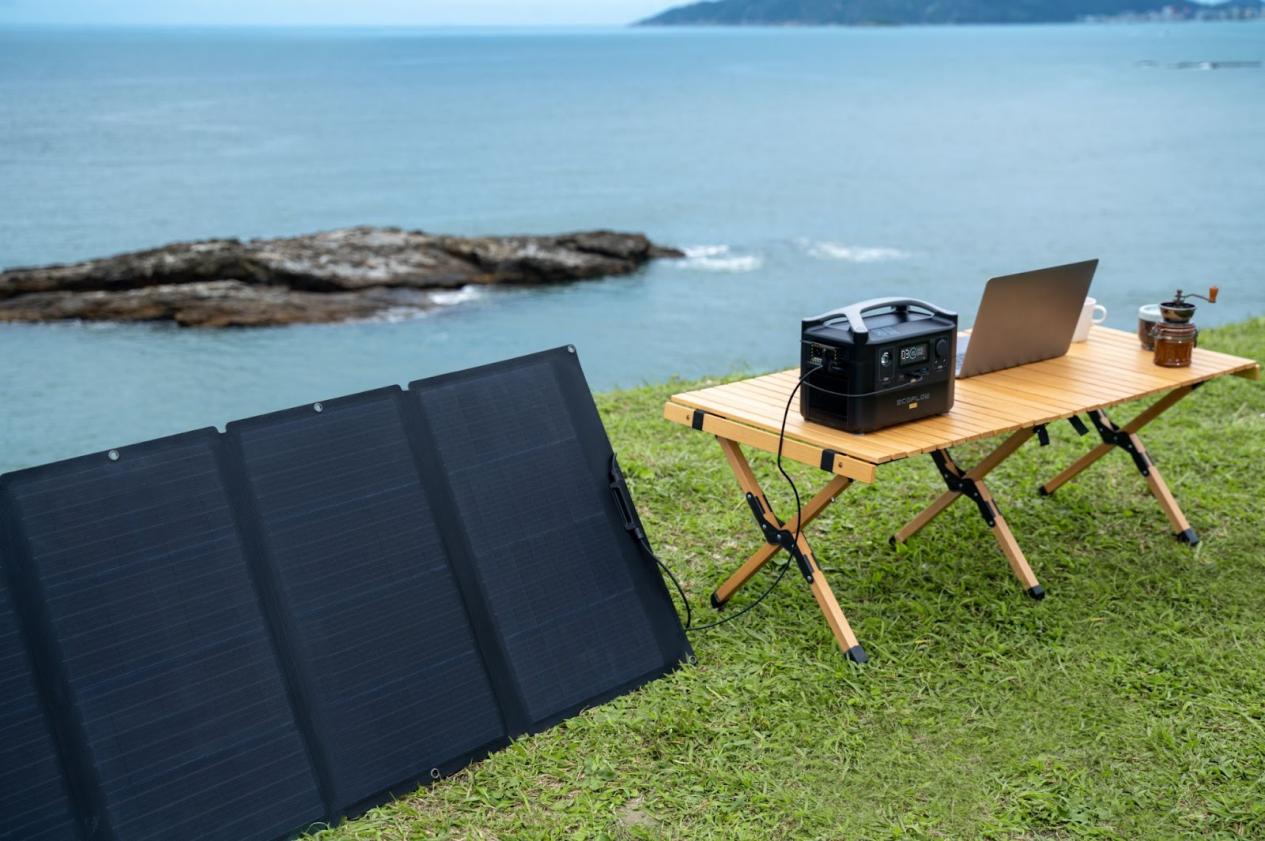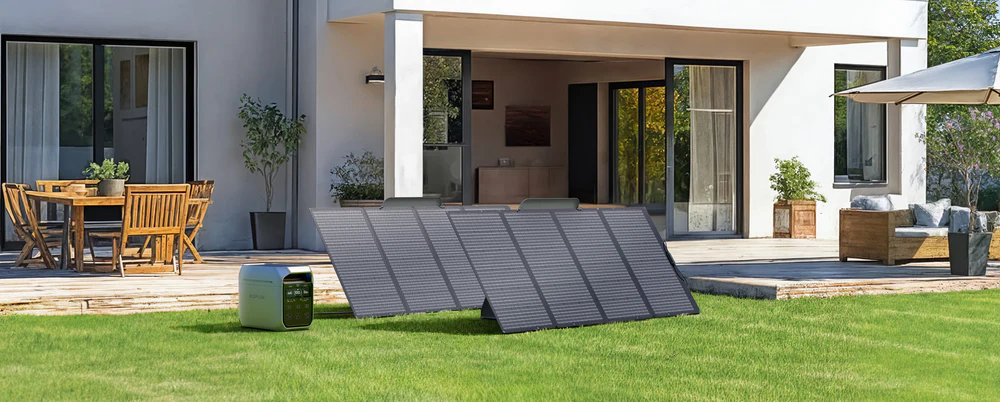7 Practical Life Hacks That Show What Portable Solar Panels Are Really Used For
- How to Keep Your Devices Powered During Outdoor Trips
- What Are Solar Panels Used for in Daily Emergency Planning
- Turning Your Car or RV Into a Mobile Power Station
- Product Spotlight: What Makes the EcoFlow 400W Portable Solar Panel Different
- How to Power Tools for Backyard DIY and Off-Grid Work
- Hosting Outdoor Events Without Worrying About Power
- Supporting Sustainable Habits in Everyday Life
- Real Answers to “What Are Solar Panels Used For?”
- FAQs: Beyond the Basics of What Solar Are Panels Used For
More and more people are turning to solar energy. Not long ago, most solar panels were seen only on rooftops or solar farms. Today, they show up in backpacks, RVs, and backyards. People are seeking real answers. What are solar panels used for beyond cutting electric bills? What about those foldable panels you can carry around?
This article explores seven life hacks that show how portable solar panels are changing everyday routines. These are practical examples you can try right now, whether or not you have solar experience.
How to Keep Your Devices Powered During Outdoor Trips
Camping and hiking offer peace and quiet, but also one clear problem: no power outlets. Phones, GPS devices, lights, and camera batteries all drain fast. For most people, packing extra power banks only helps for a day or two.
This is where portable solar panels prove their value. With a compact solar setup, you can recharge your devices every day, even in remote areas. Set up your panel in a sunny spot, connect it to a power station or battery, and you’re ready.
So, what are solar panels used for here? They are used to keep you connected, safe, and well-lit. For solo hikers, solar-powered trackers and satellite messengers can even be life-saving.


What Are Solar Panels Used for in Daily Emergency Planning
Power loss is common. Storms, outages, and overloaded grids happen often across many regions. Having backup power is smart and essential.
Portable solar panels offer quiet, clean power when you need it most. During a blackout, you can keep your phone charged, run a router, power LED lights, or even operate a CPAP machine if connected to a solar generator. You avoid using a loud gas-powered unit or long extension cords. Just sunlight.
People often ask: What are solar panels used for in a real crisis? The answer is simple. They keep your essentials running when the grid fails. No noise. No fumes. No gasoline.
Turning Your Car or RV Into a Mobile Power Station
If you’ve ever traveled in a van or RV, you know how tricky power management can be. Plugging into campsites or draining your car battery causes problems. Solar offers a better way.
A solar panel near your vehicle can keep a portable fridge running, charge fans, power speakers, or run a laptop while you edit travel footage. You avoid idling your car engine or searching for power outlets. This is true independence on the road.
Many vanlife and off-grid travelers will tell you: when someone asks, “What are solar panels used for?” this is it. Freedom. Powering your journey without depending on external power sources.
Product Spotlight: What Makes the EcoFlow 400W Portable Solar Panel Different
There are many portable panels available, but not all perform equally. The EcoFlow 400W Portable Solar Panel stands out for people who need real performance in real conditions.
At 400W, this panel delivers far more power than most portable options. That means faster charging and less waiting. It's IP68-rated, which means it’s resistant to rain and dust. Foldable and easy to carry, it fits in your trunk without taking up space. The adjustable kickstand helps you aim it for the best sun exposure.
The MC4 connectors work with most solar generators. If you pair it with EcoFlow power stations, the setup is even easier. Whether you’re camping, working outdoors, or preparing for a blackout, this panel can supply serious power.
When people ask what solar panels are used for in real life, products like this offer clear answers. They power work, travel, comfort, and safety without relying on fixed infrastructure.
How to Power Tools for Backyard DIY and Off-Grid Work
Sometimes the nearest outlet is too far. You're fixing a fence. Building a shed. Running a water pump. Extension cords do not always reach, and gas generators are not ideal for quiet work.
Portable solar panels solve this. Connect to a battery station, and you can use electric drills, lighting, or even a laptop to plan your project right where you're working. For people building cabins or managing small farms, this is often the only reliable power solution.
What are solar panels used for here? They give you autonomy. You finish your task without dragging wires or running engines. It is quiet, clean, and dependable.


Hosting Outdoor Events Without Worrying About Power
Planning an outdoor event includes stress. Power is always part of it. You need to run string lights, music systems, or small kitchen tools. You want to avoid a noisy generator buzzing during your gathering.
Solar can help in many ways. A few foldable panels charging a battery during the day can provide power for your evening needs. No noise. No smoke. No fire risk near kids or pets.
For market vendors, street performers, or mobile food stalls, solar adds more value. You avoid relying on outlets or dealing with limited grid access.
When people ask what solar panels are used for, the answer becomes clearer. They support real-life events, not just permanent setups.
Supporting Sustainable Habits in Everyday Life
Using portable solar is not limited to emergencies or travel. It fits into your daily routine. Place a panel on your porch and charge your phone or power bank. Run garden lights or security cameras. Small changes add up.
The result? You draw less energy from the grid. You reduce your footprint. You do not have to change everything. Just begin somewhere.
So, what are solar panels used for here? They support everyday choices that make a long-term difference. Sustainability starts with something simple.
Real Answers to “What Are Solar Panels Used For?”
Now you’ve seen seven clear answers. Solar panels are used for much more than rooftops or tax credits. Portable ones serve practical needs that appear every week. They keep you charged. They keep you safe. They help you stay prepared.
From the mountains to the backyard, from road trips to rainy-day blackouts, they deliver more than just watts. They offer freedom. They offer peace of mind. They provide quiet energy where it matters most.
So next time someone asks what solar panels are used for, you’ll have seven solid examples that actually work.
FAQs: Beyond the Basics of What Solar Are Panels Used For
Q1. Can I leave a portable solar panel outside permanently, or should I bring it indoors after use?
It depends on the specific model, but in general, portable solar panels are not designed for permanent outdoor exposure. Most are weather-resistant but not weatherproof long-term. For example, the EcoFlow 400W Portable Solar Panel is rated IP68, which protects against dust and water, but prolonged sun, wind, and rain may still reduce its performance over time. If you're not actively using it, folding and storing it indoors will preserve the materials and extend the panel's lifespan. Treat it more like gear than infrastructure. Portable means flexible, not fixed.
Q2. What is the charging time difference between a 400W panel and smaller 100W or 200W models?
A 400W panel can charge compatible power stations significantly faster than lower-wattage models. For instance, under ideal sun conditions, a 400W panel may charge a mid-size battery in 3–5 hours, while a 100W panel might take 12–20 hours for the same task. Efficiency also depends on the panel’s conversion rate, the battery’s input capacity, and how effectively you angle the panel toward the sun. For frequent users or those with higher power needs, the time saved with a 400W panel justifies the extra weight and cost.
Q3. Are portable solar panels safe to use near kids, pets, or during social events?
Yes, when used correctly, portable solar panels are generally safe for families, pets, and outdoor gatherings. They don't emit fumes, make noise, or involve high-voltage wiring exposed to touch. That said, some panels can become warm during peak sun hours, and cable management is important to prevent tripping or accidental damage. When setting up during social events, place the panel in a low-traffic area, use secure stands, and keep cords tidy. This ensures safety while letting you enjoy clean power without the hazards that come with traditional generators.
Q4. Do portable solar panels work in cloudy weather or during winter months?
Yes, but with reduced output. Solar panels can still generate electricity on cloudy days and in colder months, though efficiency may drop by 30% to 70% depending on cloud density, angle of the sun, and temperature. Interestingly, solar cells often perform better in cooler air, so winter sun can still be effective if skies are clear. To optimize performance year-round, adjust your panel’s angle regularly and avoid shaded locations. Carrying a battery to store surplus energy on sunny days can also help bridge power gaps during overcast periods.
Q5. Can I use a portable solar panel to power home appliances like a microwave or refrigerator?
In most cases, not directly. Portable solar panels need to be connected to a power station or an inverter that stores and regulates energy. Whether you can power appliances depends on the total wattage output of your full setup. A 400W panel paired with a high-capacity solar generator can easily run small fridges, LED TVs, or microwaves for short periods. However, consistent use of high-draw devices requires careful energy budgeting and possibly multiple panels. If your goal is to power larger appliances for several hours, you’ll need to size both your panel and storage correctly.
Solar Panels
For press requests or interview opportunities, reach out to our media team
media.na@ecoflow.com